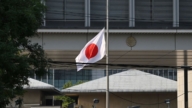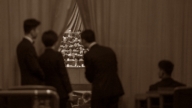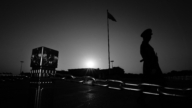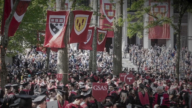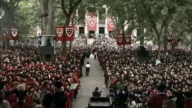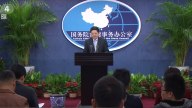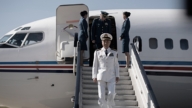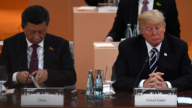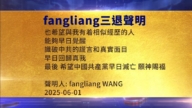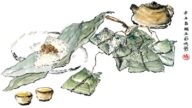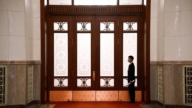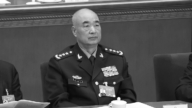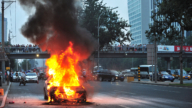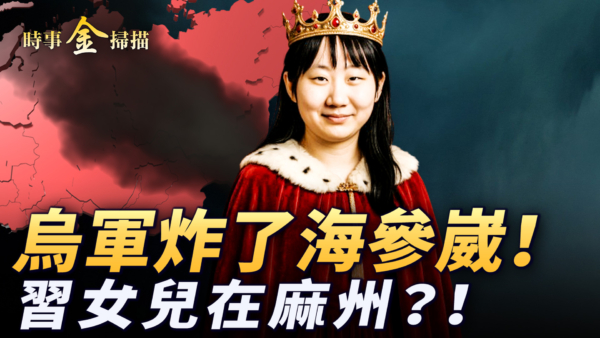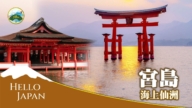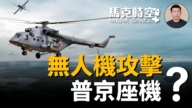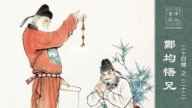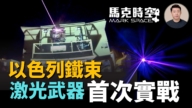【新唐人2015年01月29日讯】中共即将在今年9月3号举行大阅兵,这是习近平上任以来的首次阅兵,更是中共建政后首次不在“十一”举行大规模阅兵,因此备受各界关注。
中共《人民日报》微信号,于1月26号发出有关阅兵文章,间接证实中共将于今年举行纪念抗日战争胜利70周年纪念阅兵式。
这篇题为《中国今年为何大阅兵?》的文章称,今年大阅兵目的有四,包括展示军事实力、震慑日本、凝聚国内信心及展现军队掌控在中共手中的事实。
美国纽约城市大学政治学教授夏明:“我们看到中共的阅兵有一个传统,就是这些领导人他的核心地位得到建立。某种程度上来说,也是要重申枪杆子里面出政权。”
香港《文汇报》报导,中共将在今年9月举行阅兵,并邀请其他国家元首出席。文章引述香港媒体称这是中共公安部副部长傅政华证实的消息,又称俄罗斯总统蒲亭估计将到北京出席。
美国纽约城市大学政治学教授夏明:“我觉得有两个因素非常值得注意,第一就是中俄在建立专制的一种轴心联盟,那么我们看到以上海合作组织为核心,你就可以看到中国跟东亚的这些国家和俄国,他们在打造一个对抗西方世界的这么一个联盟国家。”
第二个原因,美国纽约城市大学政治学教授夏明认为,蒲亭对俄国的宪法进行大量变更,他建立的国家安全体系,其实就是今天习近平模仿的对像,某种程度他们是非常亲近的盟友。
不过,时事评论员邢天行认为,亚洲地区国家包括蒲亭在内,对所谓的“中国崛起”,一直是存有戒心的,他们不可能真正站在中国利益这一边。
时事评论员邢天行:“所以就是说,从整体形势上来看,这次阅兵其实就是习近平进一步向外界宣示,军政大权一统,同时也是在警诫那些看不清形势的人。”
据了解,中共在文革后举行过三次大型阅兵活动,分别是在1984年、1999年、2009年。
时事评论员夏小强撰文总结,1984年阅兵,邓小平借助与越南的一场战争,向美国示好,向党内展示权力。1999年阅兵,江泽民刚刚发动了对中国社会和政局影响巨大的镇压法轮功信仰运动,因此通过阅兵制造恐怖气氛。2009年阅兵,江泽民与胡锦涛同时现身天安门阅兵台,显示江泽民仍然“垂帘听政”。
时事评论员邢天行:“习近平要通过这个大阅兵,尤其大阅兵之前,这么长时间他就宣布出来之后,全国要进行一个总动员,要进行排演,这个过程实际上就是在洗刷江系当年那个影响力,也就是说,宣誓的信号就是让世界皆知,从此以后中国将进入习权下的时代。”
邢天行分析指出,对于中共来讲,一切都是为了政治,它的外交是为内政服务,从阅兵来看,最核心的问题就是为了内政。
时事评论员邢天行:“这个一系列的动作都能看出来,他(习近平)的目标根本就不是在震慑美和日这方面,不过就是说,在选择这个时间点上,因为作为党媒那个报导上,它一定要给中国一个说法,肯定是说啊,这个时间是要去震慑日本,同时也是宣扬军力强大,是针对美国来的,它是要这样说,但是这个绝对不是习近平的真实的意图,习近平的真实的意图,实际还是在他这个反腐这个核心上。”
英国广播公司《BBC》报导,引述香港资深中国事务评论员林和立的说法指,习近平上任后大幅改组中共上层权力架构,除所谓反腐打虎外,军方高层也频繁替换资深将领,因此,今年的大阅兵,是给习近平一个对内彰显军权的机会。
采访/陈汉 编辑/黄亿美 后制/李智远
What’s Behind The Chinese Regime’s Unprecedented
Major Military Parade Ahead of National Day?
The Chinese Communist Party (CCP) officially announced a
large-scale military parade will be held on Sep.3 2015.
This is not only the first military parade since Xi took power,
but also the first time since 1949 that any major military
parade will be held on a day other than Oct.1, the CCP’s
National Day,.
The news has created a great deal of public attention.
Party mouthpiece People’s Daily released an official
WeChat piece on Jan.26.
The piece indirectly confirms that a military parade will be
held in 2015.
It is to commemorate the 70th anniversary of the
victory over Japan in World War II.
The online piece is titled “Why Does China Hold a Military
Parade in 2015?" The piece presented four reasons:
Firstly “to display military power";
Secondly “to intimidate Japan";
Thirdly “to lift national morale"; and
Lastly “to show the party is in control of the army".
Xia Ming, professor of politics at CUNY, “We see the CCP’s
military parade has a tradition that it is held after the
authority of a new leader is established.
To some extent, the move is again to claim ‘power grows
out of the gun", a principle that the party believes in".
According to Hong Kong’s Wen Wei Po, the CCP will invite
foreign political leaders to the September parade.
The report quoted other Hong Kong media that, the deputy
minister for public security Fu Zhenghua had confirmed the
news, and Russian President Putin will attend the event.
Xia Ming, “I think there are two points that should be
brought to attention.
First, the CCP and Russia may be setting up an axis power
of the dictatorship regime.
If taking the Shanghai Association Organization as the core
of this system, one may see that the CCP, along with Russia
and some East Asian countries, is establishing an alliance
to oppose the western world".
The second key fact Prof. Xia Ming mentioned, is Putin’s
mass amendments on constitution and establishment
of a state security system. Putin can be an example for
Xi Jinping to follow, said Xia.
So the two countries can be intimate allies in this sense.
On the other hand, political commentator Xing Tianxing
believes other Asian countries, as well as Russia, are
always vigilant against the concept of the so-called
“Chinese Century".
They will never really stand for the CCP’s benefits,
said Xing.
Xing Tianxing, “This is to say, the big picture suggests that
the military parade is Xi’s display of his military and
political power to the world. It also serves as a warning
message to those sitting on the fence".
Since the end of Cultural Revolution, the CCP has held
three major military parades, in 1984, 1999 and 2009.
Xia Xiaoqiang, political commentator, wrote a summary
of the three previous parades.
In 1984, Deng Xiaoping conflicted with Vietnam, as a sop
to the U.S. and display of his power.
In 1999, Jiang Zemin started the persecution against
Falun Gong, which has created a huge impact on China’s
society and politics ever since. Jiang held the military
parade to make a terrifying effect.
In 2009, Jiang Zemin and Hu Jintao showed up together
at the top of Tiananmen.
Analysts suggested Jiang was still “holding court"
even after retirement.
Xing Tianxing, political commentator, “This time Xi made an
early announcement of the parade.
The whole country has to prepare for it from now on.
Xi’s goal is, through all these preparations, to root out all
of Jiang’s remaining forces.
In other words, the military parade and pledge of allegiance
is to let the world know China is now in Xi Jinping’s era."
Xing commented that, every CCP move is to serve its
political goal; diplomatic moves of course do the same.
Therefore the core issue in holing a large-scale military
parade is still to solve internal political problems, said Xing.
Xing Tianxing, “We can see this from a series of Xi’s moves.
Xi’s ultimate goal is not in intimidating the U.S. or Japan.
To be announced at this time, party media have to give a
“reasonable" statement about why the parade will be held.
All they can say is about intimidating Japan, a display of
military power, a move directed against the U.S. etc.
But certainly these are not Xi’s real purpose for holding
the parade.
The core issue that Xi really worries about
is still his anti-corruption campaign."
A BBC Chinese report quoted Hong Kong senior China
affairs commentator Willy Lam.
Lam said, Xi had made significant personnel changes
among high-level CCP officials since taking power.
Besides his “tiger hunt" moves, there have also been
frequent substitutions between military leaders.
With such a backdrop, this year’s military parade will give
Xi an opportunity to display his military power to the
whole party, said Lam.
Interview/ChenHan Edit/Huang Yimei Post-Production/Li Zhiyuan


